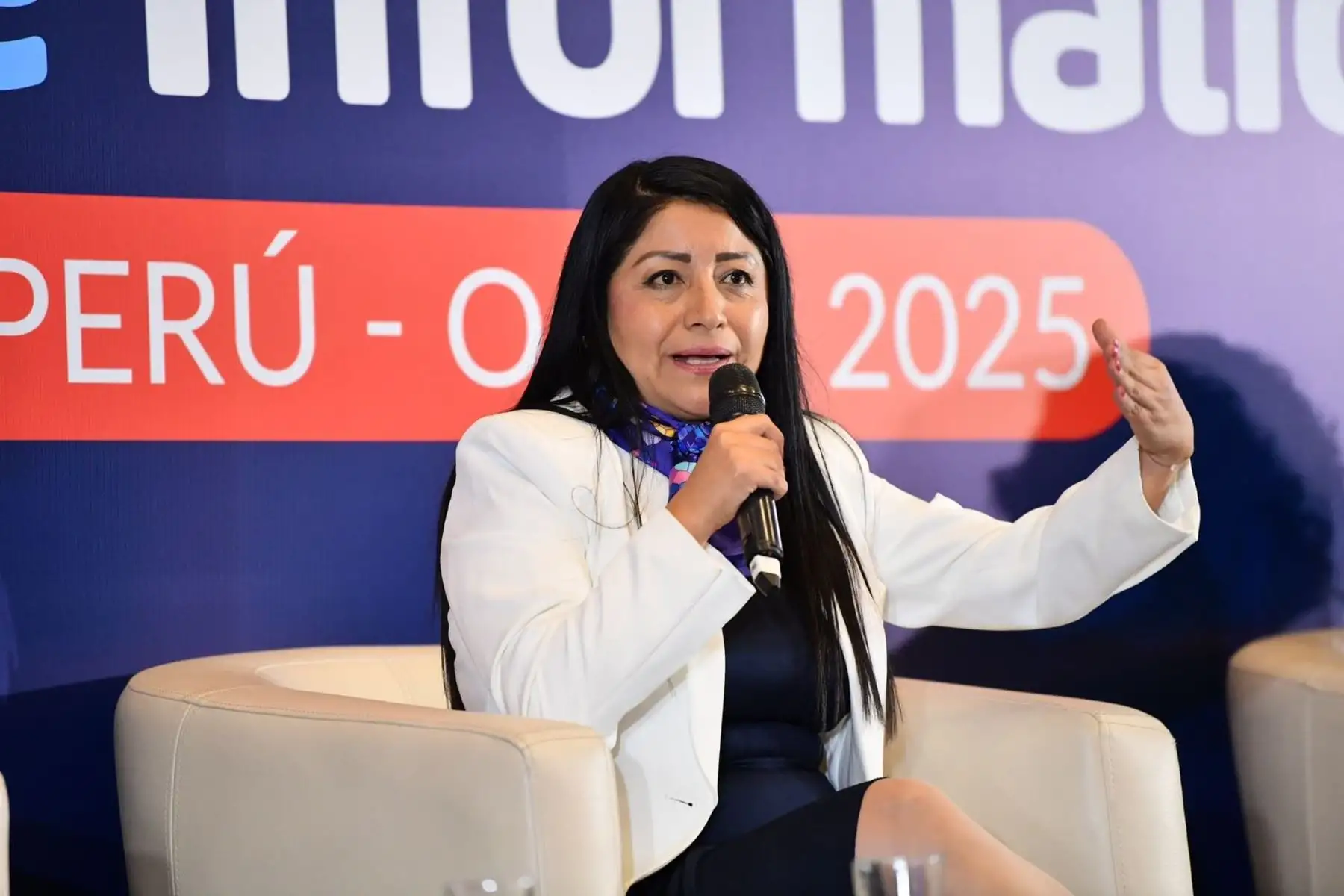Peru is moving forward with concrete steps that strengthen confidence and boost business activity, stated the Minister of Economy and Finance, Denisse Miralles, today at the Peru-OCDE (Organisation for Economic Co-operation and Development) Ministerial Meeting on Productivity and Informality 2025.
She also reaffirmed the commitment of the Peruvian President Jose Jeri's government to an economic agenda focused on formalization, productivity, and competitiveness.
During her remarks, the head of the Ministry of Economy and Finance (MEF) indicated that the Peru is promoting a comprehensive strategy to combat informality through policies that combine regulatory improvement, technological innovation, human capital development, and access to financing.

“Peru is demonstrating that it is possible to grow in an orderly and responsible manner. Our goal is to build an environment where investing and generating formal employment becomes increasingly easier, faster, and more predictable,” stated Minister Miralles.
The deregulatory shock, led by the Ministry of Economy and Finance (MEF), has already identified 660 steps, of which 451 have been completed (68%) and 209 are undergoing multisectoral evaluation.
These reforms are reducing costs, eliminating redundancies, and accelerating private investment, especially benefiting micro and small enterprises (MSEs), which represent the largest source of employment in the country.
“We are eliminating the obstacles that hinder productivity. Every simplified procedure is time gained to produce, innovate, and generate opportunities. Formalization is not just rhetoric: it is a development policy,” emphasized Minister Miralles.
She also highlighted that the deregulation process is complemented by the implementation of the National Competitiveness and Productivity Plan 2024–2030, which coordinates actions to modernize government services, improve technical and higher education, promote innovation, and expand access to credit for MSEs.
Multisectorial commission
The Minister of Economy and Finance also highlighted the creation of the Multisectoral Commission for Labor Formalization, tasked with identifying sectors with a high incidence of informal employment and proposing specific interventions to promote the transition to formality.
These efforts are already showing tangible results: in the first half of 2025, more than 268,000 workers entered formal employment, a 6.8% increase compared to the previous year, while average wages in Metropolitan Lima grew by 11.6%, reflecting the direct impact of productivity on labor income.
In her closing remarks, Minister Miralles emphasized that cooperation with the OECD and the Inter American Development Bank (IDB) will allow Peru to strengthen its competitiveness and formalization policies.
“This meeting is not only a technical exchange, but also a declaration of shared commitment to building more productive, inclusive, and sustainable economies,” she stated.
The opening ceremony was attended by the Minister of Production, Cesar Quispe; The Minister of Labor and Employment Promotion, Oscar Fernandez; the Minister of Economy, Industry and Commerce of Costa Rica, Patricia Rojas; the Undersecretary of Macroeconomic Policy of the Ministry of Finance of Brazil, Raquel Nadal; as well as representatives from the OECD and the Inter-American Development Bank (IDB).
The OECD (Organisation for Economic Co-operation and Development) is a forum and knowledge hub for data, analysis and best practices in public policy. OCDE works with over 100 countries across the world to build stronger, fairer and cleaner societies – helping to shape better policies for better lives.
(END) NDP / MDV
More at Andina:
Published: 10/30/2025